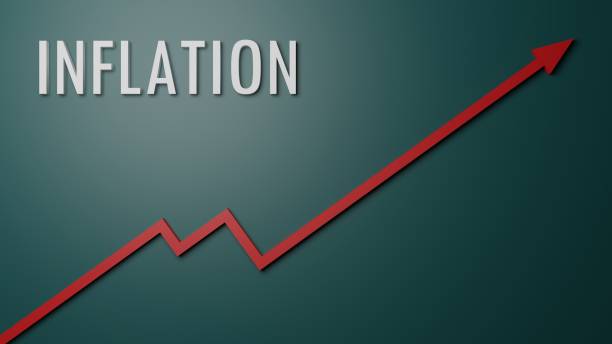How much money needed to Retire at 55? Many people dream of retirement, and setting out from work early, at 55, can easily be attractive. Yet, making the vision come true needs proper planning, guided saving, and understanding how much you need to support your lifestyle after retirement. While you can retire at 65 with little savings, needing your funds for 10 years or fewer, retiring at 55 increases the length of your retirement and means you need to save more to last. This article walks you through retirement planning for anyone anxious about retiring at 55, by focusing on money needs, tips for managing inflation, health aspects, and recommendations for investments.
Exploring the Economic and Budgeting Side of Quitting Work Early
If you retire at 55, you should think about managing life’s expenses for up to 30 to 40 years. Because people now retire at a later stage, they must put aside much more money for their savings. Even if you qualify for Social Security, you won’t get benefits until you are 62, and full benefits are paid out at around age 67. To get through those several additional years, you’ll have to rely entirely on the money you save, any retirement funds, or other forms of passive income.
Also, early retirees should be aware that inflation will slowly reduce how far their savings go. A retirement fund that seems adequate right now is unlikely to provide for your needs in 20 or 30 years. So, it becomes necessary to see how inflation affects your finances and create a smart withdrawal plan, so 55 is considered the right age to retire.
How Much Gross Income Will You Spend in Retirement

You should first figure out your annual expenses before you can decide how much money you’ll need to retire at 55. Such things include a home, utilities, moving, food, health expenses, travel, and entertainment. While work costs can be lower, the costs for health and entertainment could be higher as you age.
Make sure to update your expenses accordingly to plan for a different way of life when you retire. As a rough guide, you should assume you’ll need around 70% to 80% of your pre-retirement income each year, as the actual amount depends on your personal plans and where you plan to be. If you want to retire abroad or in a small town, you may not have to worry about a large fund, but if you like to live comfortably or in a large city, you will need more savings.
Making a Retirement Saving Goal with the 4% Rule
A common rule is the 4% one, saying you can take out 4% of your retirement savings every year and not exhaust your savings in thirty years. To live on $50,000 a year after retirement, you need about $1.25 million saved. If you earn $75,000 a year, you need about $1.875 million in savings.
Yet, if you begin retirement at 55, your retirement might last more than 30 years, so the 4% rule could be too risky. Picking a lower withdrawal rate, like 3.5% or 3%, means you’d have to build a bigger nest egg. As a result, early retirement plans are made more carefully so they are not easily affected by price swings or old age.
Thinking About Healthcare Costs for Early Retirees

People often ignore how much healthcare will affect their budget in early retirement. When you retire at 55, you don’t get Medicare benefits until you turn 65. So, a private health insurance or healthcare plan must be kept for a decade, which is often a costly requirement. Include premiums, deductibles, prescriptions, and long-term care in your plans for retirement.
Some people who retire early choose to use a Health Savings Account to save up for these expenses. You get three tax benefits from an HSA: contributions are tax-deductible, earnings go untaxed, and your qualified medical expenses can be covered tax-free. When you factor doctors’ visits into your budget, you may avoid extra expenses later.
Making sure your money comes from several sources, including sources beyond retirement accounts
If you retire early, using just 401(k)s and IRAs may not work, since usual early withdrawals are penalized before you reach age 59½. That’s why it’s important to find various sources of income. Start your retirement by using taxable investment accounts, purchasing rental properties, investing in dividend-paying stocks, buying annuities or working part-time or as a freelancer.
A diverse income helps you manage better and may reduce the stress on your main savings. As a result, it makes it possible to meet daily needs while waiting for benefits or pensions to start. One mark of a good early retirement plan is the presence of many different financial sources.
Facing up to Inflation and Market Volatility

A retirement plan has to be able to resist the impact of inflation and changes in the market to work well. With inflation present, your retirement could double in cost between your retirement and your 75^{th} or 80^{th} birthday. Investments that aim to increase should be part of your portfolio as you retire, not just when you’re still working. Integrating equities and fixed-income earns big profits over the long run and protects against drop-offs.
Retirees are encouraged to keep a small reserve (emergency fund) that should meet at least one or two years’ worth of costs. Because of this cushion, you won’t need to sell at a loss in times of a falling market, saving your portfolio in the long run.
How Early Retirees Should Handle Social Security
Even though you can’t claim Social Security at 55, you need to think ahead about when and how to apply for it. The earliest age to start getting benefits is 62, but your payments will be lower all your entire life. You can get the highest monthly amount by waiting until age 70. People who retire early have to ensure their income matches the long-term perks of not taking Social Security right away.
The timing of retirement affects both spousal and survivor benefits, so working with your partner’s plan is important. By using strategic planning, you can make your savings work for you for longer and risk having fewer funds when you are older.
How to Make an Early Retirement Plan
Everyone’s goals for retirement and how much money they have can be unique. For this reason, having a retirement plan that is personalized with a certified financial planner makes a big difference. The plan should outline the budget, outline how you will invest, deal with taxes, organize estate matters and address risk issues. You need to frequently check and adjust your financial goals as your life situation and market circumstances vary.
Your financial planner can show you various examples of retirement planning, look over your savings during market problems, and develop the right way for you to withdraw money in retirement. The help of a professional can have a real impact on your early retirement plans.
Considerations after Reaching Age 55
Those who plan their finances and stick to saving can achieve retiring at 55. A bigger savings plan, a smart investment and income system, and taking healthcare, changes in inflation, and taxes into account are needed. Determining your retirement finances at age 55 and applying proper systems can help you retire securely and with plenty of time for hobbies.

